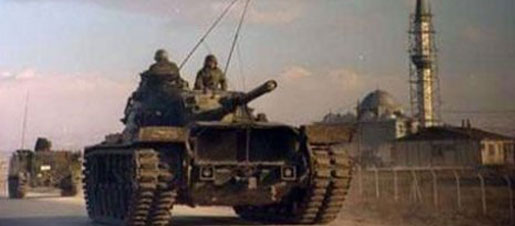
Ankara 11th High Criminal Court ruled in favor of taking nine more suspects into custody, incl. Ex-Army Chief Bir who testified to prosecutors on Sunday as part of a probe of the Feb. 28, 1997 postmodern coup.
Ex army head Cevik Bir and the eight other suspects who were arrested and sent to prison are among 31 suspects for whom detention warrants were issued on last Thursday as part of the investigation of the 1997 military intervention, which eventually forced the coalition government to resign in what is widely referred to as a postmodern coup due to the nonviolent tactics employed. The coalition government back then consisted of Welfare Party ( Refah Partisi) and Doğru Yol Partisi ( Righteous Path Party ).
Turkey Coups on the table
The nine suspects were among 12 others who testified to prosecutors at the Ankara Specially Authorized Prosecutor’s Office, which is overseeing the probe on Sunday and were referred to a court for taking into custody.
The nine suspects were sent to Sincan Prison, while the court has imposed a travel ban on the three others who were released. Sincan is a town outside Ankara where the military ordered tanks onto the streets in a show of force against the religious Welfare party leaders and officials for their exorbitant comments targeting the secular regime of Turkey.
Turkish Army lost significant power during AKP administration in Turkey
Cevik Bir, the founding officer of an army unit established to head off Islamic challenges to the secular state, was taken into custody in Istanbul on Thursday. The move is considered a retaliation attempt since the leaders of current AKP party has their roots in Welfare Party.
He and the other officers of the Turkish Military are being investigated for their roles in forcing the coalition government led by the Islamic Welfare Party to step down in 1997.
It was the fourth — and most recent — military intervention even if it was a post – modern coup and not a bloody one – into politics in Turkey.
The simple threat of military action issued at a national security council meeting was enough for Prime Minister Necmettin Erbakan, the Welfare Party’s leader, to quit the government, what he did immediately shortly after.
The intervention is often remembered by Mr. Cevik Bir’s words as he told reporters, ‘ We gave democracy a balance check ‘ after the withdrawal of the Islamic Welfare Party.
Current Turkish PM Erdogan has risen to power following the postmodern 1997 coup in Turkey
The action eventually led to the banning of the Welfare Party, of which the Turkeys current prime minister, Recep Tayyip Erdogan, and the current president, Abdullah Gul, were junior members. The ban of the antisecular party led to the emergence of the Justice and Development Party, which Tayyip Erdogan has founded and still leads. It is now the Turkey’s governing party and since 10 years Turkey has no coalition governments.
The case against Ergenekon, an alleged clandestine organization nested within the state trying to overthrow or manipulate the democratically elected government, has been underway since 2007, transforming into the trial of coup attempts in the process. The fact that out of 365 generals in the Turkish army, 58 are under arrest gives us hints about the fear of current government on this issue.
Does AKP seek to avenge the 1997 coup in Turkey ?
Last week saw in Turkey a case against one of the bloodiest coups starting. This case, against the Sept. 12 military coup that was staged 32 years ago, was a landmark development. And the investigation into the Feb. 28 coup implies that the last successful coup, i.e., the postmodern coup of Feb. 28, 1997, will be prosecuted. It may be that Turkish democracy is settling its accounts with coups or it is a retaliation attempt since AKP (Justice and Democracy Party ) seeks revenge on the military whose power has diminished forcefully during AKP govermnent’s triple administrations.
[adrotate group=”9″]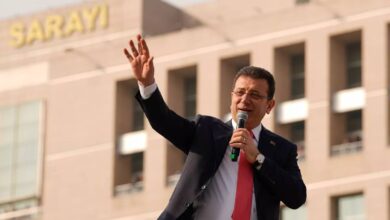 Istanbul Mayor Ekrem İmamoğlu was detained
Istanbul Mayor Ekrem İmamoğlu was detained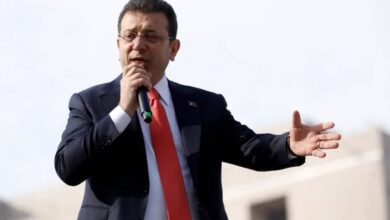 Istanbul University annuls Mayor Ekrem Imamoglu’s diploma
Istanbul University annuls Mayor Ekrem Imamoglu’s diploma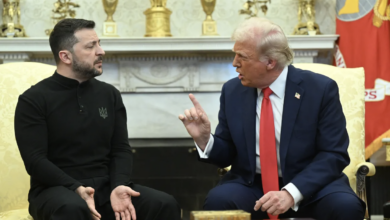 Donald Trump says Zelensky ‘come back when he is ready for Peace’
Donald Trump says Zelensky ‘come back when he is ready for Peace’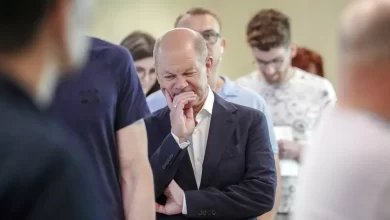 German elections and why this vote is important
German elections and why this vote is important